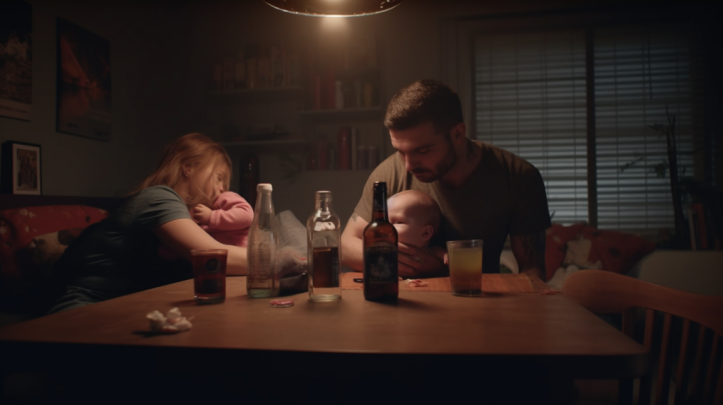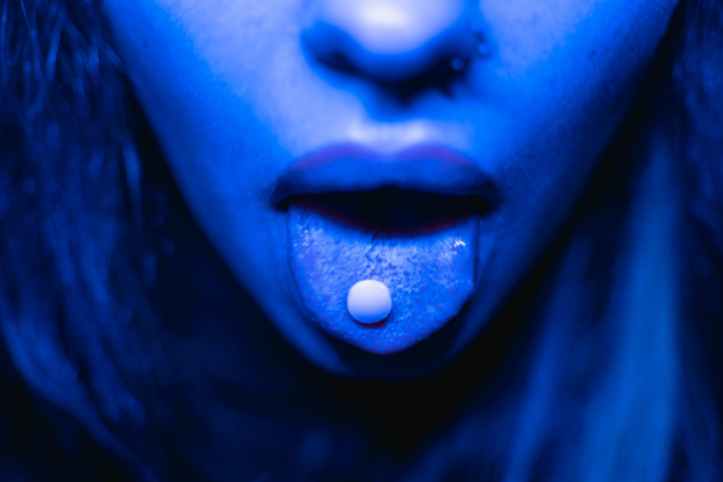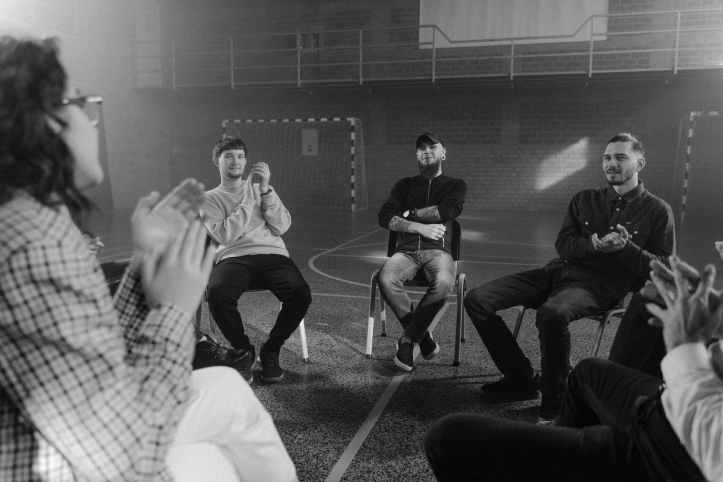Alcohol and drugs are substances that have been around for thousands of years. People use them for various reasons, such as relaxation, socialization, and escape from reality. However, the use of alcohol and drugs can take a toll on our mental state, leading to various negative consequences that can have long-lasting effects on our lives. In this article, we will explore the dark side of alcohol and drugs and the toll they take on our mental state.
Podcast form of Article : The Dark Side of Alcohol and Drugs

How do Alcohol and Drugs work ?
To better understand the effects of alcohol and drugs on the brain, we must first understand how they work. Both alcohol and drugs work by altering the chemical balance in the brain, leading to changes in mood, perception, and behavior.
Alcohol, for example, is a depressant that slows down brain function (lowing down the central nervous system), leading to feelings of relaxation and decreased inhibitions. However, when consumed in excess, it can impair judgment and motor skills, leading to accidents and injuries.
Drugs, on the other hand, can have varying effects on the brain. Drugs can act as stimulants, depressants, or hallucinogens, depending on the type of drug and the dose. For example, stimulants like cocaine and amphetamines can increase alertness and energy levels, while opioids like heroin and morphine can produce feelings of euphoria and pain relief. However, all drugs have the potential to be addictive and can cause severe damage to the brain over time.

While the initial effects of alcohol and drugs may be pleasurable, prolonged use can lead to addiction, a chronic and relapsing brain disease characterized by compulsive drug seeking and use despite harmful consequences. Addiction can have a profound impact on mental health, leading to symptoms of anxiety, depression, and other mood disorders.
But what causes addiction? The answer is complex and multifaceted, with genetic, environmental, and social factors all playing a role. Some people may be more susceptible to addiction due to genetic factors, while others may develop an addiction as a way of coping with stress or trauma.
One common risk factor for addiction is early exposure to drugs or alcohol. Adolescents who begin drinking or using drugs at an early age are more likely to develop an addiction later in life. Peer pressure, stress, and lack of parental supervision can also contribute to substance abuse.
The Negative Consequences of Alcohol and Drugs on Mental Health
Alcohol and drugs can have many negative consequences on our mental health, including:
- Depression and Anxiety:
- Studies have shown that alcohol and drug abuse can lead to depression and anxiety disorders. This is because alcohol and drugs can alter brain chemistry, leading to imbalances that can trigger these conditions.
- Memory and Cognitive Function:
- Alcohol and drugs can impair memory and cognitive function, making it difficult to remember things, concentrate, and make decisions.
- Mood Swings and Aggression:
- Alcohol and drugs can cause mood swings and aggression, leading to fights, accidents, and other dangerous situations.
- Psychosis and Hallucinations:
- In some cases, alcohol and drug abuse can lead to psychosis and hallucinations. This is because the substances can alter brain chemistry, leading to changes in perception and thought processes.
The toll of alcohol and drug use on mental health can be devastating, leading to a range of mood disorders, including depression, anxiety, and bipolar disorder. Substance abuse can also exacerbate existing mental health conditions, making treatment more difficult.

Real-Life Examples
The negative consequences of alcohol and drugs on mental health are not just theoretical. They have real-life consequences that can affect people from all walks of life. Here are some examples:
- Amy Winehouse:
- Amy Winehouse was a famous singer known for her soulful voice and songs about heartbreak and addiction. However, her life was plagued by drug and alcohol abuse, leading to her untimely death at the age of 27. Her tragic story is a reminder of the toll that alcohol and drugs can take on mental health.
- Lindsay Lohan:
- Lindsay Lohan was a child star who rose to fame in movies like “The Parent Trap” and “Mean Girls.” However, her life spiraled out of control as she struggled with alcohol and drug addiction, leading to numerous arrests and stints in rehab.
- Heath Ledger:
- Heath Ledger was a talented actor known for his roles in movies like “Brokeback Mountain” and “The Dark Knight.” However, his life was cut short by a drug overdose, highlighting the dangers of drug addiction.

Breaking the Cycle
Breaking the cycle of alcohol and drug abuse is not easy, but it is possible. Here are some strategies that can help:
- Seek Professional Help:
- If you or someone you know is struggling with alcohol or drug addiction, seek professional help. There are many treatment options available, including therapy, medication, and support groups.
- Develop Coping Skills:
- Coping skills are essential for dealing with stress and difficult emotions without turning to alcohol or drugs. Coping skills can include mindfulness, exercise, and talking to friends and family.
- Find a Support System:
- Having a support system of friends and family who understand what you are going through can be helpful in overcoming addiction. It can provide encouragement, accountability, and a sense of community.
- Make Lifestyle Changes:
- Making lifestyle changes such as eating a healthy diet, getting enough sleep, and practicing self-care can help in the recovery process. These changes can help improve overall physical and mental health and decrease the desire to turn to alcohol or drugs.
- Avoid Triggers:
- Avoiding triggers such as certain people, places, or activities that can lead to using alcohol or drugs can be helpful in maintaining sobriety. It is important to identify triggers and come up with a plan to avoid or manage them.

To Summarize, alcohol and drugs can have a significant negative impact on our mental health. They can lead to depression, anxiety, memory loss, aggression, and even psychosis. However, breaking the cycle of addiction is possible. Seeking professional help, developing coping skills, finding a support system, making lifestyle changes, and avoiding triggers can all be helpful strategies in overcoming addiction and maintaining sobriety. Remember, it is never too late to seek help and start on the path to recovery.
Article Series : Lost in Chaos
Lost in the Chaos: How Social Pressure, Family Expectations, Sedentary Lifestyles, and More are Messing with Our Minds – Overcoming Disorientation in the 21st Century – Article Series
Previous article in the series
- The Modern Age of Confusion: Understanding Disorientation in Today’s World – Lost in Chaos P1
- The Overload of Social Pressure: How It Affects Our Minds and Lives
- The Impact of Family Expectations on Our Mental Health and Well-being – Lost in Chaos P3
Next article in the series : Living in the Digital Age: How Overuse of Social Media Leads to Disorientation – Lost in Chaos P5
Our team in constantly working towards providing you research and facts based perspective of numerous topics. To get Regular updates and To be a part of On going Article Series, You can Follow and Subscribe us on https://curiositytrend.com/

[…] https://curiositytrend.com/2023/04/17/the-dark-side-of-alcohol-and-drugs-the-toll-they-take-on-our-m… […]